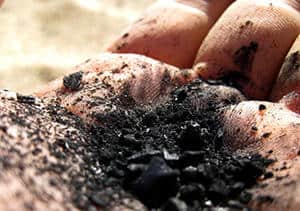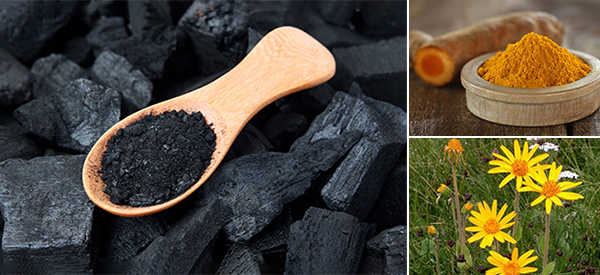
Activated Charcoal
Activated charcoal is a highly effective natural remedy for healing skin. It has the ability to draw out foreign objects, such as splinters, from the skin. Additionally, it can absorb infections when applied as a paste. Despite its black color, activated charcoal does not stain the skin.
Chamomile
Chamomile, often known for its relaxation-promoting properties when consumed as tea, also offers numerous benefits for wound healing. It possesses anti-microbial and anti-inflammatory properties that can help reduce pain and inflammation associated with wounds. Using chamomile as a wash or salve on red, inflamed wounds can help accelerate the healing process. Applying a damp chamomile tea bag to the wound can also be effective. Consuming chamomile orally can promote faster healing as well.
Turmeric
Turmeric, a common spice found in many kitchen cabinets, is considered an antiseptic and antibiotic agent. Its active compound, curcumin, can modulate collagen and help stop bleeding in wounds. Applying turmeric to a wound can result in almost immediate cessation of bleeding.
Pure Honey
Pure honey, particularly Manuka honey, possesses antimicrobial and antibacterial properties. It is also acidic, and research indicates that wounds with a high alkaline pH have a slower healing rate. Applying pure honey directly to burns can expedite the healing process. Studies have also shown that patients with diabetes who have developed leg ulcers can benefit from honey. Spreading honey across a cleaned wound and covering it with a bandage, changing it every 2-3 days, can maximize its healing effects.
Aloe Vera
Aloe Vera, commonly found in cosmetic products, can also be purchased as a plant. The gel from the plant has long been used to heal scrapes and burn wounds. Its moisturizing and pain-relieving properties make it a valuable remedy for dry skin, cuts, and burns.
Calendula
Calendula, also known as marigold, is a vibrant plant often used to treat eczema and poorly healing wounds. Calendula oil, extracted from marigold flowers, can be applied directly to the affected area to provide instant pain relief and reduce inflammation. It promotes new tissue growth in wounds, making it ideal for minor injuries. Combining calendula oil with aloe vera can greatly accelerate wound healing.
Garlic
Garlic, known for its use as a food enhancer, also possesses excellent wound healing properties. Its anti-inflammatory, antioxidant, and antibacterial properties can accelerate collagen maturation in injured skin tissue. Applying garlic oil to the skin can help clear psoriasis, eczema, and dry cracks.

Comfrey
Comfrey is a plant that contains poisonous chemicals and should be used with caution. It should never be consumed orally or applied directly to broken skin, as it can lead to liver complications and infection. However, when used correctly, comfrey can accelerate the healing process of bruises, abrasions, and healing scar tissue. A salve made from comfrey leaves can significantly reduce cellular inflammation.
Arnica
Arnica, also known as mountain daisy, is a yellow-orange flower commonly used to boost healing following surgeries. Its gel can be directly applied to the skin and does not leave a greasy residue. A study conducted in 2010 found that arnica was more effective than vitamin K in reducing bruising. However, it should not be used on broken skin or open wounds, as it can irritate the skin and cause contact dermatitis.
In conclusion, natural remedies can play a significant role in healing wounds faster. Activated charcoal, chamomile, turmeric, pure honey, aloe vera, calendula, garlic, comfrey, and arnica all offer unique properties that can aid in the healing process. It is essential to use these remedies correctly and consult a healthcare professional if needed.
—————————————————————————————————————————————————————————————–
By: Jessica Thomas
Title: 9 Natural Remedies To Heal Wounds Faster
Sourced From: www.bioprepper.com/2023/11/22/9-natural-remedies-to-heal-wounds-faster/
Published Date: Wed, 22 Nov 2023 15:24:56 +0000

